Imagining Otherwise
The Imagining Otherwise exhibition handout text, which offers further context for our summer exhibition this year, was printed in June 2024. It was then edited and reprinted in July to reflect the changes to the show during its run. It has been slightly edited again for the third time.
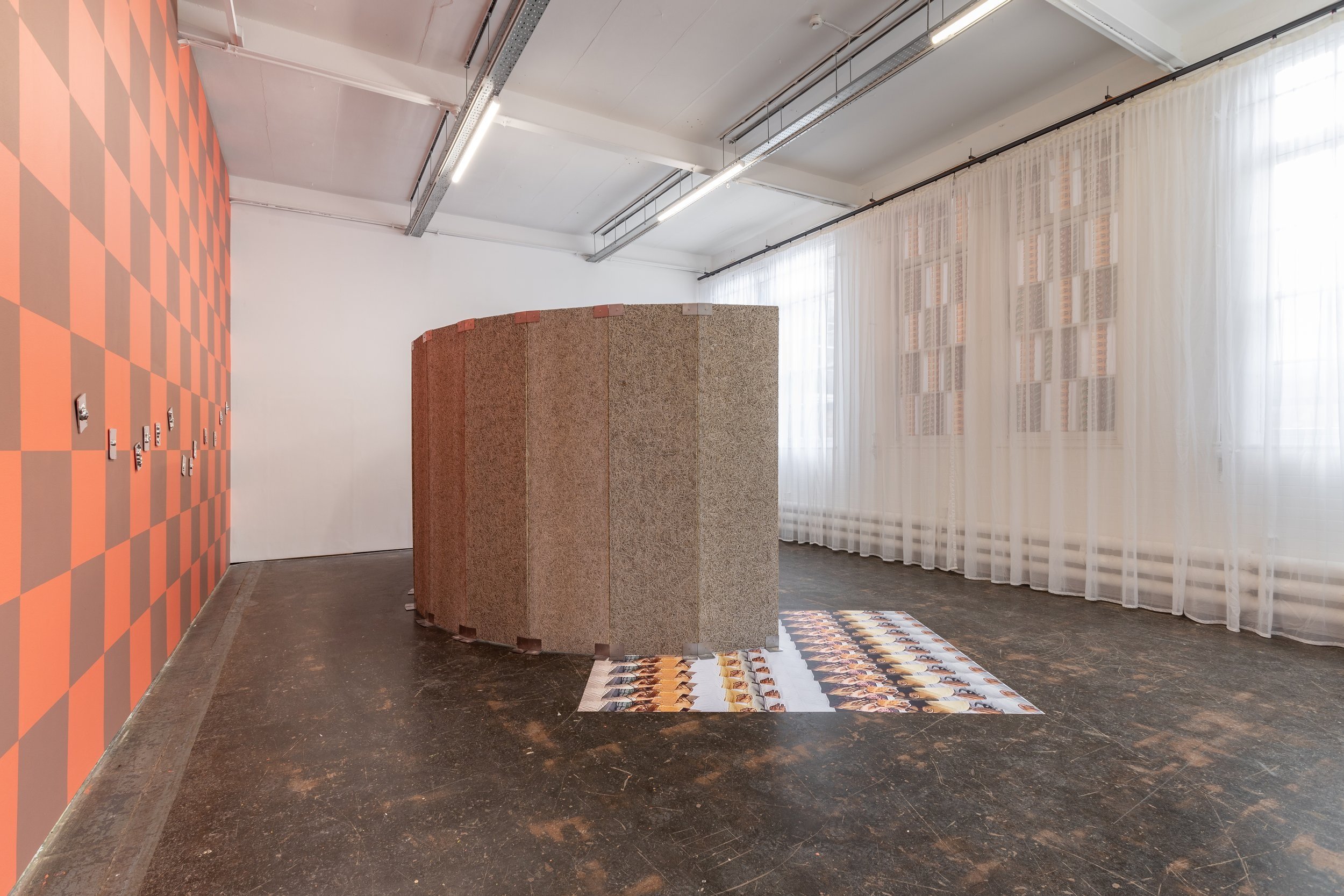
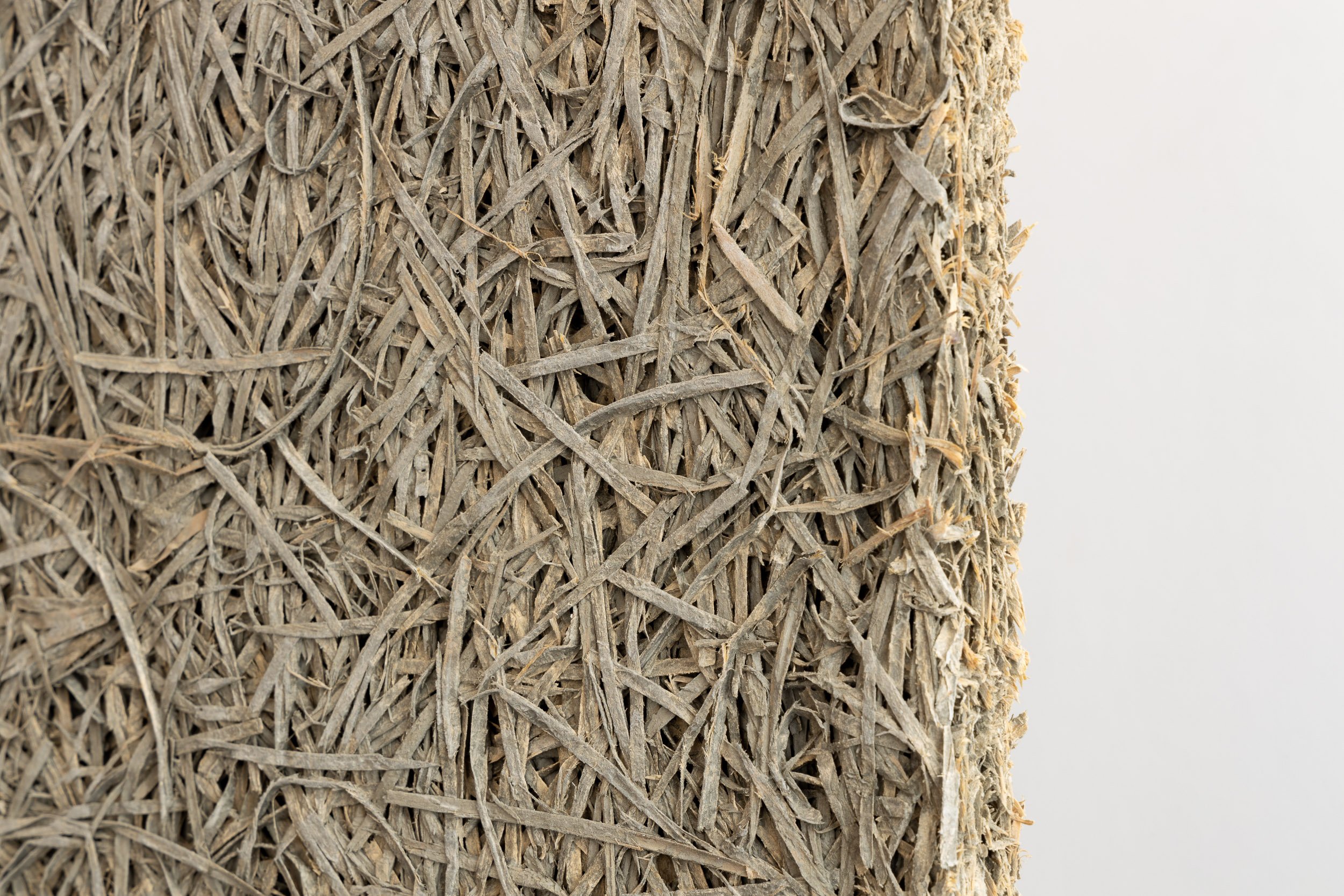
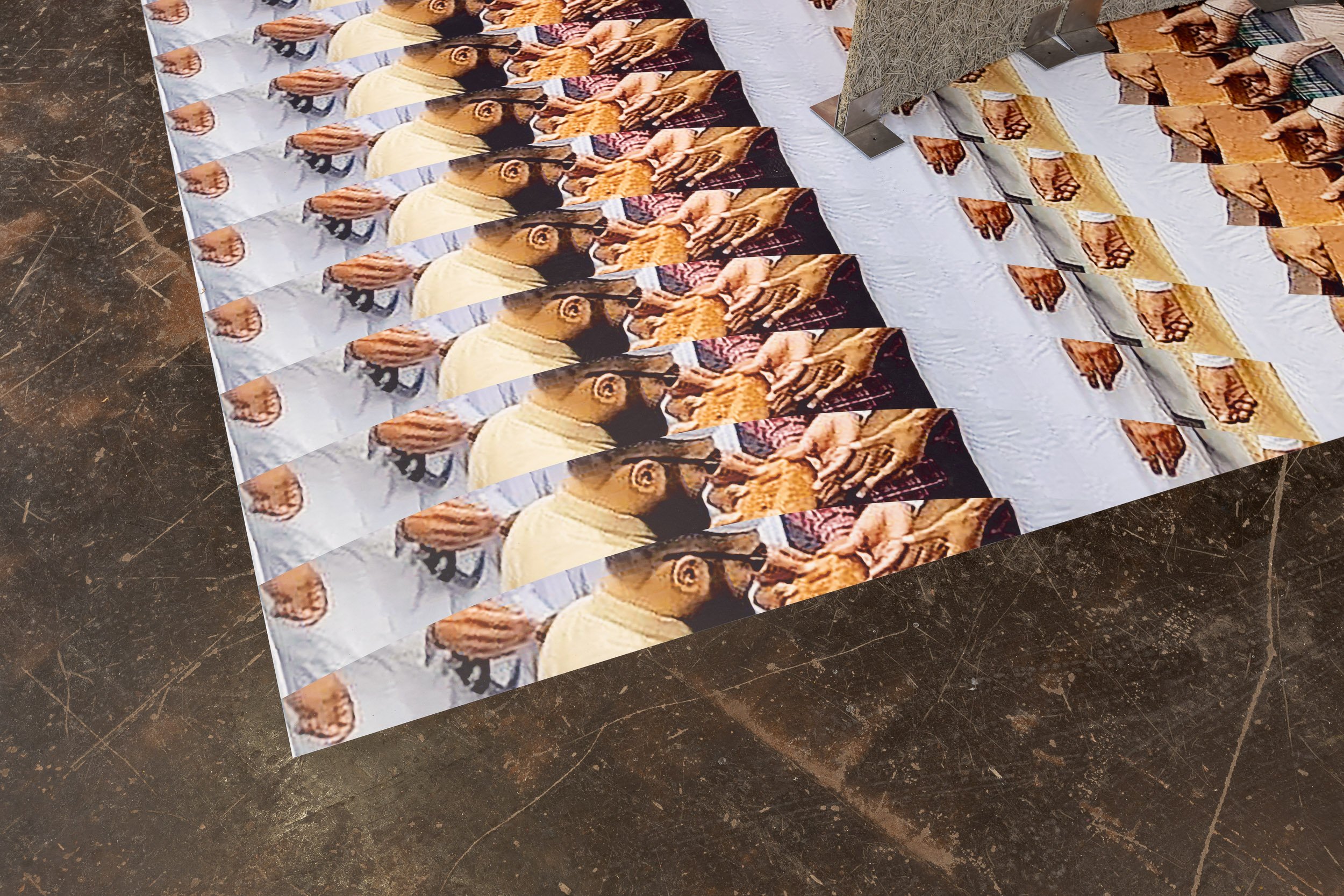
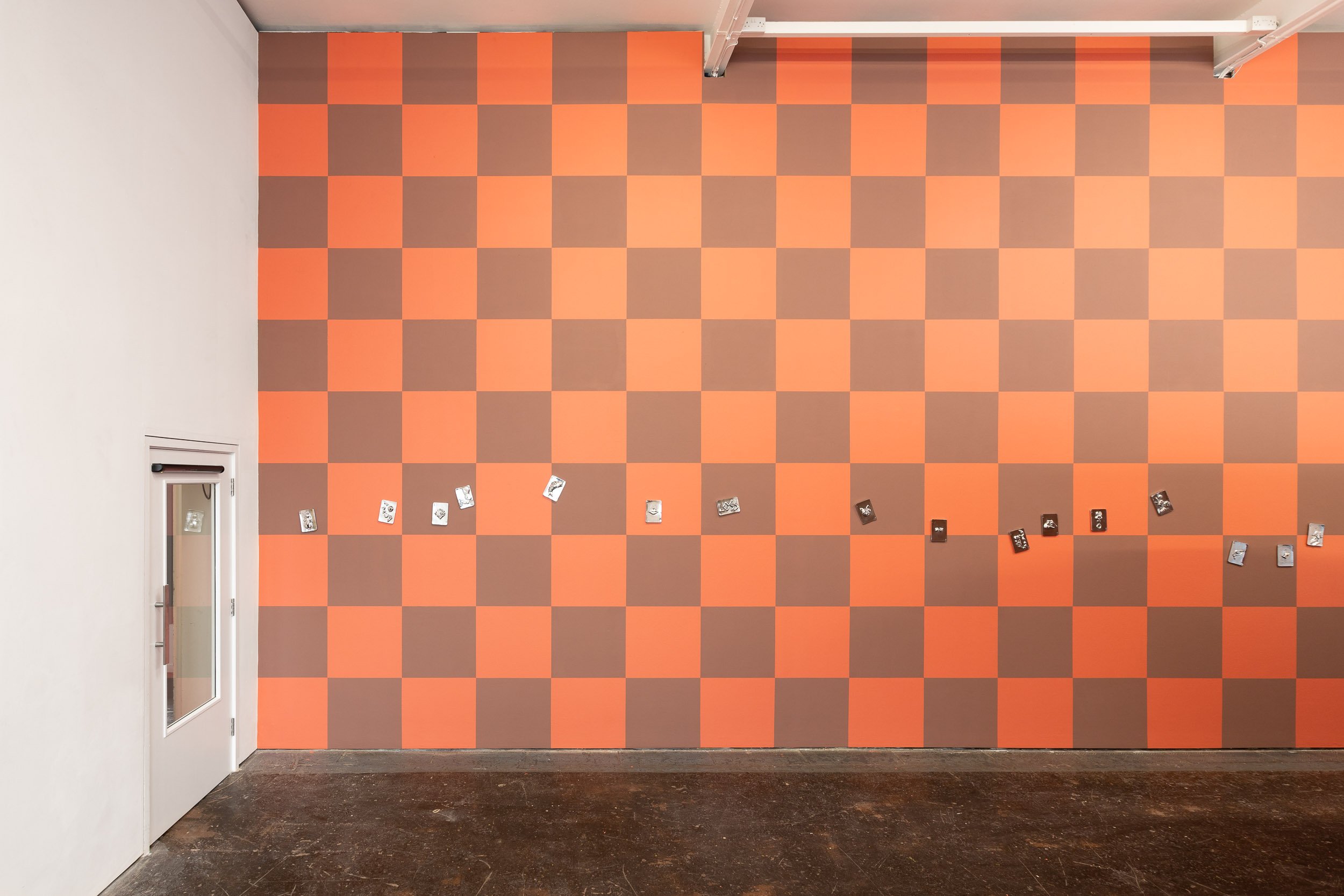
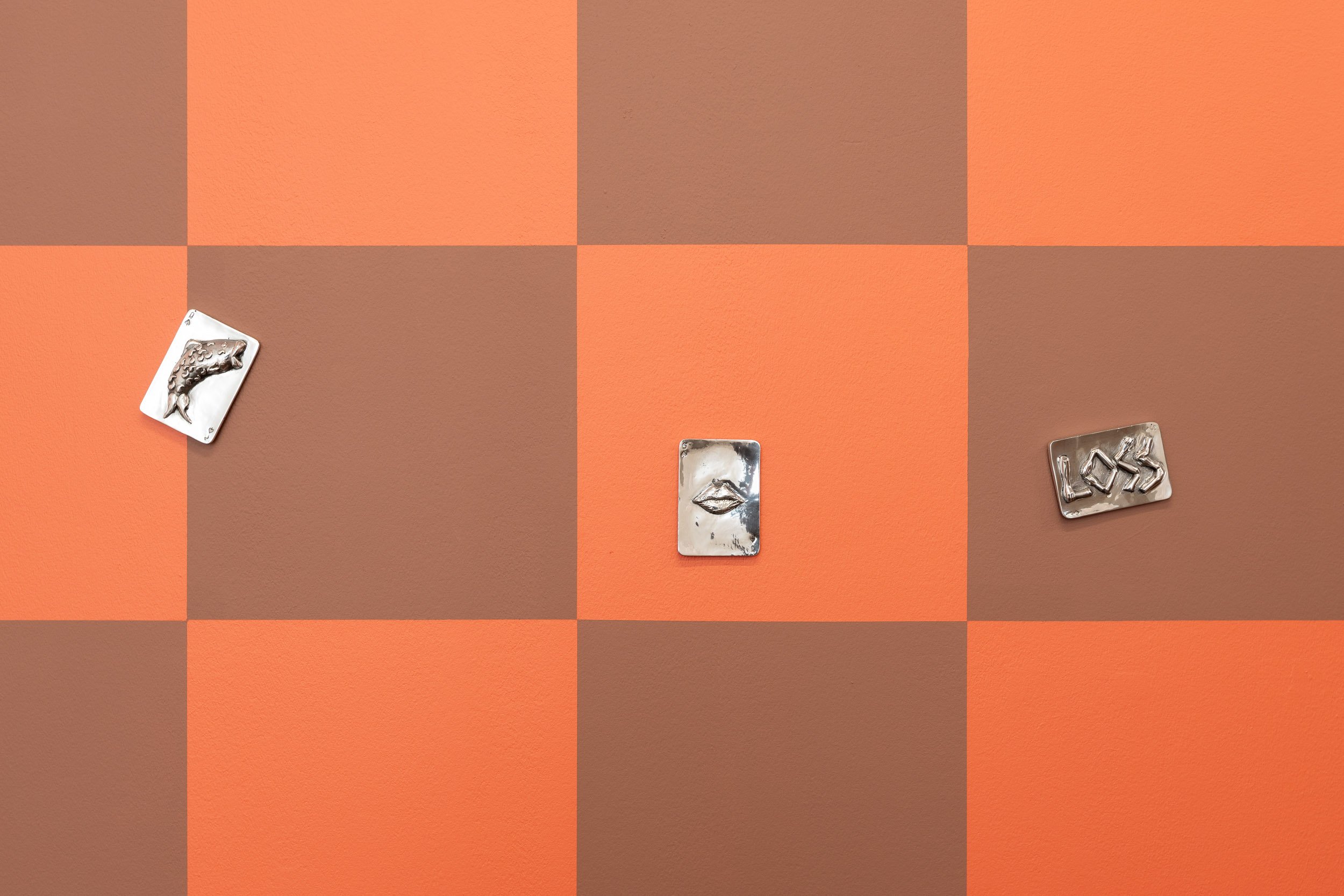
07.06.2024
As you enter Gallery 1, you are met with Ashley Holmes’ panelled structure initially commissioned for the exhibition Skylarking at Arts Catalyst, Sheffield (2024). The work was designed by Mitre & Mondays and is comprised of Celenit natural material with soundproofing qualities—made so it can be reused. Fabricated with a focus on dub sensibility when it comes to studio production, Ashley has always been fascinated by the collaborative nature of music. In particular, he researches practices like the ‘version’* and the ‘riddim’** within Reggae music and its iterative subgenres. These working methods have operated as a conversation and exchange between artists. The approach is referential and intergenerational and has evolved across genres since the 1970s, continuing today as an ongoing response to found materials to re-animate ideas, lyrics, and sounds in pre-existing music recordings. The version also functions outside of a legal framework and disrupts the language around copyright law, questioning broader social understandings of single ownership.
Ashley is thinking about adding an audio element within the structure.
Skylarking is centred around collaboration and conversation, considering what a multidisciplinary, collective approach to working could be. Therefore, Primary’s team will spend time with his work during the exhibition to consider how sound could be added to the structure, how it may come into play during a sonic event in the gallery, and its relationship to the other works in the space.
This initial presentation of artworks, before the exhibition changes halfway through, also comments on propaganda.
Presented on a checkerboard patterned wall, Metaphysical Reunification (2023) by artist Jala Wahid is a deck of aluminium-cast playing cards that counters and responds directly to the equivalent deck created by the Department of Defense, encouraging the USA Army’s preservation of archaeology during the invasion of Iraq. Here, we have presented 20 of Jala’s cards from the deck. Jala is now collecting and expanding upon artefacts from Mesopotamia and modern-day Greater Kurdistan. These artefacts were either displayed in London or Paris or are still missing after the USA’s military invasion of Iraq. Jala’s archival intervention directly opposes the illegal excavations and looting of archaeological finds.
2024 Turner Prize-nominated artist Jasleen Kaur presents a photograph of land restitution between the Muslim and Sikh communities in Moga, Punjab, in 2021. Foundations are being ceremonially laid for a mosque to be reconstructed. You can see a brick being passed among hands. The photograph has been manipulated and reworked by Jasleen and, on this occasion, is printed in vinyl. The image on the floor is obstructed by and simultaneously extends Ashley’s structure, which stands on top of it.
The images on the windows are caricatures of Moghuls, taken from popular Sikh martyr images of the 1950s. Jasleen grew up seeing these in worship and home spaces, specifically in the room where you eat blessed food. After a collective conversation between Primary’s programme team and all the exhibiting artists, Jasleen came to this selection because of their shared aesthetics, but also in consideration of the general election in India now and Narendra Modi's anti-Muslim hate speech as part of his campaign.
The images on the floor and windows counter one another. One is the historical narrative of ‘Muslim’ being fixed through mass-produced cartoonish imagery/propaganda. The other is a modern-day, overlooked news story that threatens the State’s nationalistic agenda. The images in the window alternate like a checkerboard, mirroring Jala’s work.
Jade Foster, Primary’s Programme Curator, is thinking about the exhibition’s physical change, potentially reflecting on the UK’s upcoming election on July 4, which coincidentally aligns with the timeline for when the second configuration of Imagining Otherwise becomes public. July 4 is also, ironically, the USA’s Independence Day, a federal holiday commemorating the Declaration of Independence and the USA’s breakaway from British colonial rule. Jade feels an interesting tension between these moments in time and with Jala and Ashley’s work, with the latter artist’s broader practice drawing on the thinking and history of Mississippi Delta Blues in the Deep South of the USA. Ashley is also interested in how Western norms of ownership have historically informed music circulation and people’s right to access land.
* Version: ‘Another cut of a popular rhythm. This can be the vocal, deejay, instrumental or dub version, employing the same rhythm track as the original, or another producer’s recording of the rhythm’ (Barrow and Dalton 1997, 378).
‘The original version takes on a new life and meaning in a fresh context. …It’s a democratic principle because it implies no one has the final say. Everybody has a chance to make a contribution’ (Hebdige 1987, 14).
** Riddim, if popular, may be used in dozens—or even hundreds—of songs, not only in recordings but also in live performances. Since the 1970s, riddims have accompanied reggae music and through the 1980s, more widely known as dancehall. As seen in dancehall music, there is a voicing part—sung by the DJ—over some riddim that has probably been widely used in many other songs. There is a unique establishment in the combination of riddims and voicing.
01.07.2024
As you enter Gallery 1, you are met with Ashley Holmes’ panelled structure initially commissioned for the exhibition Skylarking at Arts Catalyst, Sheffield (2024). The work was designed by Mitre & Mondays and is comprised of Celenit natural material with soundproofing qualities—made so it can be reused. Fabricated with a focus on dub sensibility when it comes to studio production, Ashley has a long-standing interest in the collaborative nature of music. In particular, he researches practices like the ‘version’* and the ‘riddim’** within Reggae music and its iterative subgenres. These working methods have operated as a conversation and exchange between artists. The approach is referential and intergenerational and has evolved across genres since the 1970s, continuing today as an ongoing response to found materials to re-animate ideas, lyrics and sounds in pre-existing music recordings. The version also functions outside of a legal framework and disrupts the language around copyright law, questioning broader social understandings of single ownership.
Skylarking is centred around the processes of collaboration and conversation, thinking about what a multi-disciplinary, collective approach to working could be. Therefore, Primary’s team spent time with his work during the exhibition’s duration, thinking about how sound could be added within the structure, how it may come into play during a sonic event in the gallery, and its relationship to the other works in the space. Ashley’s accompanying sound piece, Soliloquy Dub, was also included in his previous Skylarking exhibition in Sheffield earlier this year. The audio piece features words, music and field recordings that have been layered and manipulated in response to the Peak District and its sonic textures, echoes and reverberations. Additionally, Ashley is presenting Untitled (2021), a large monochrome print on non-woven fabric displayed on the wall facing the gallery's main entrance.
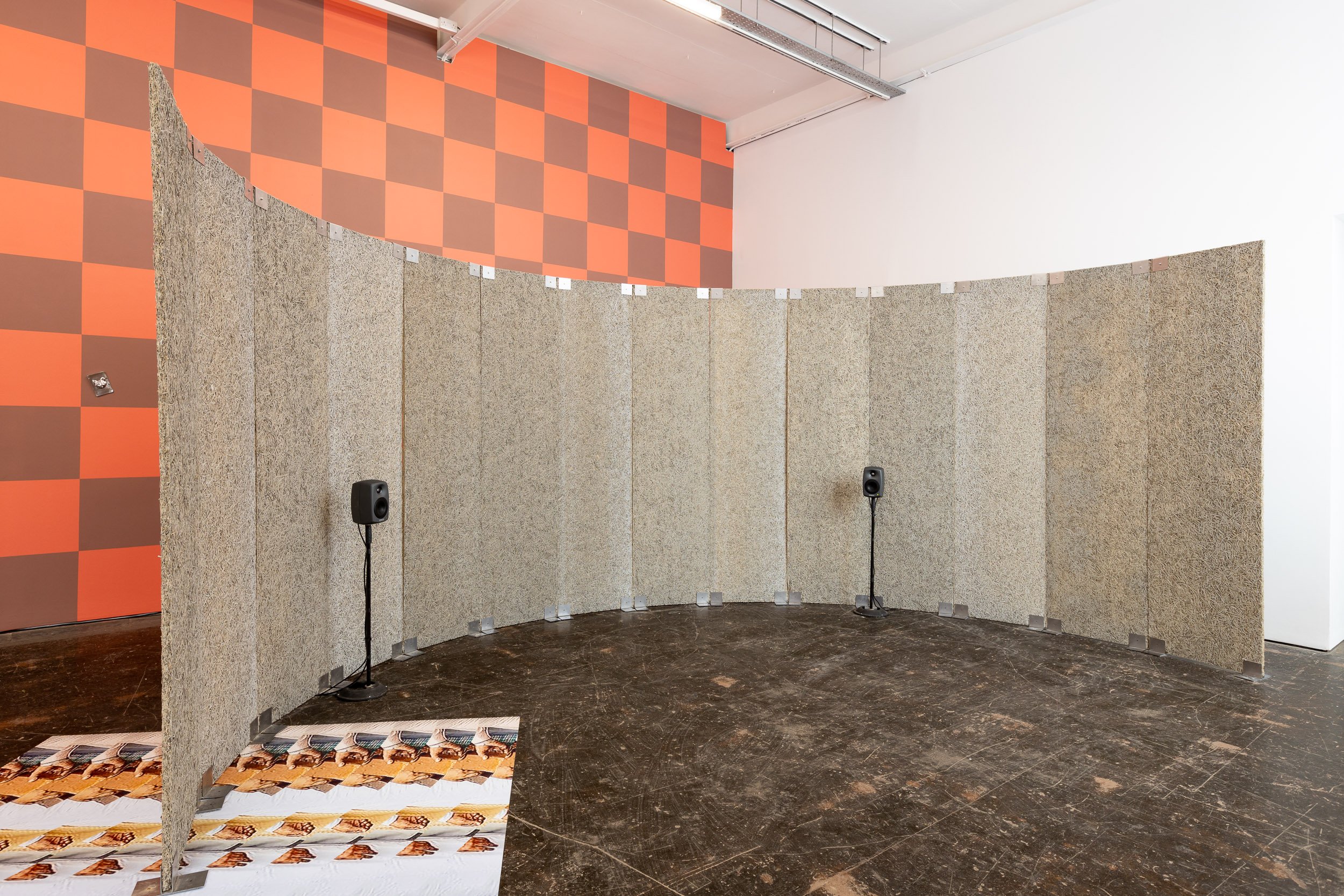
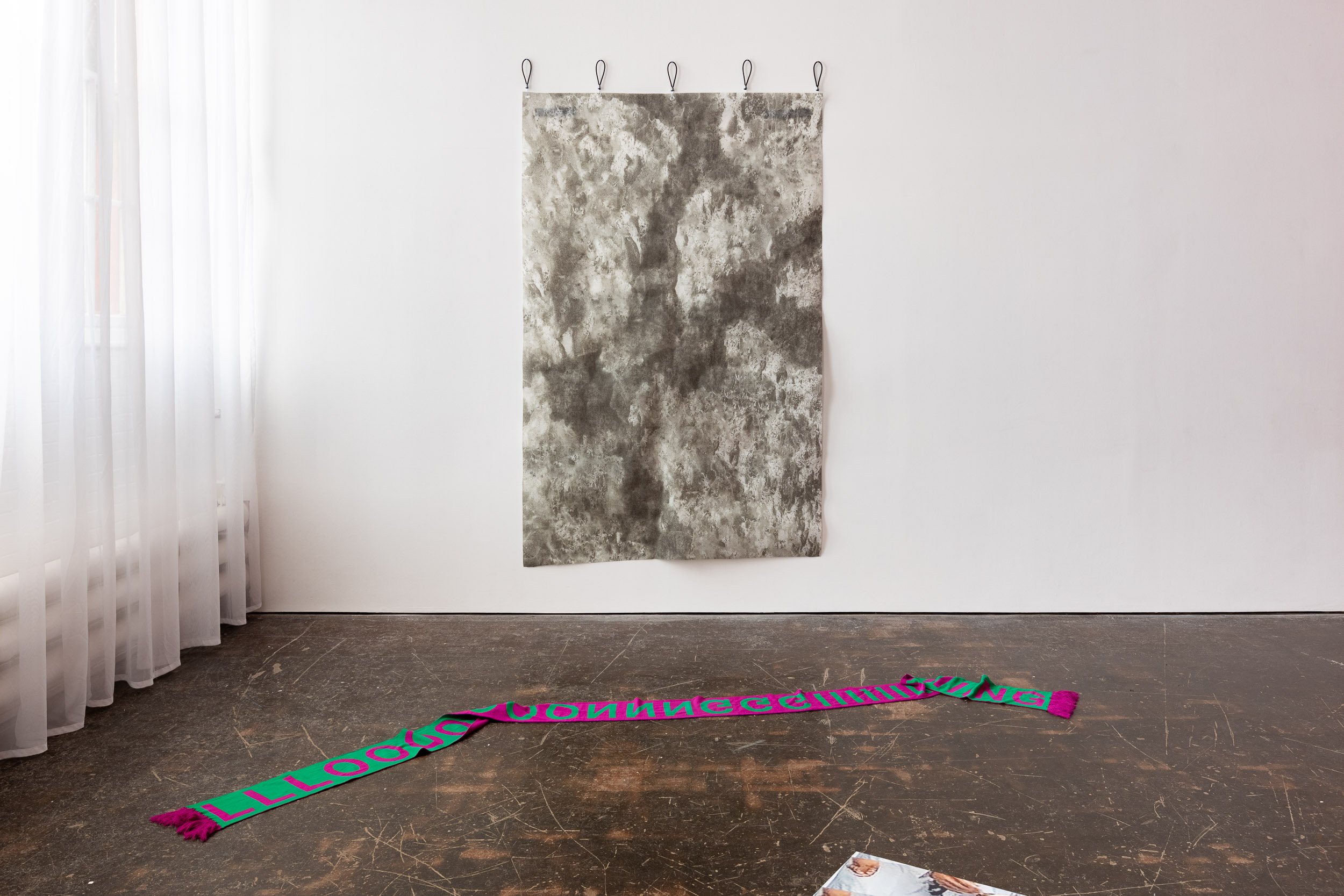
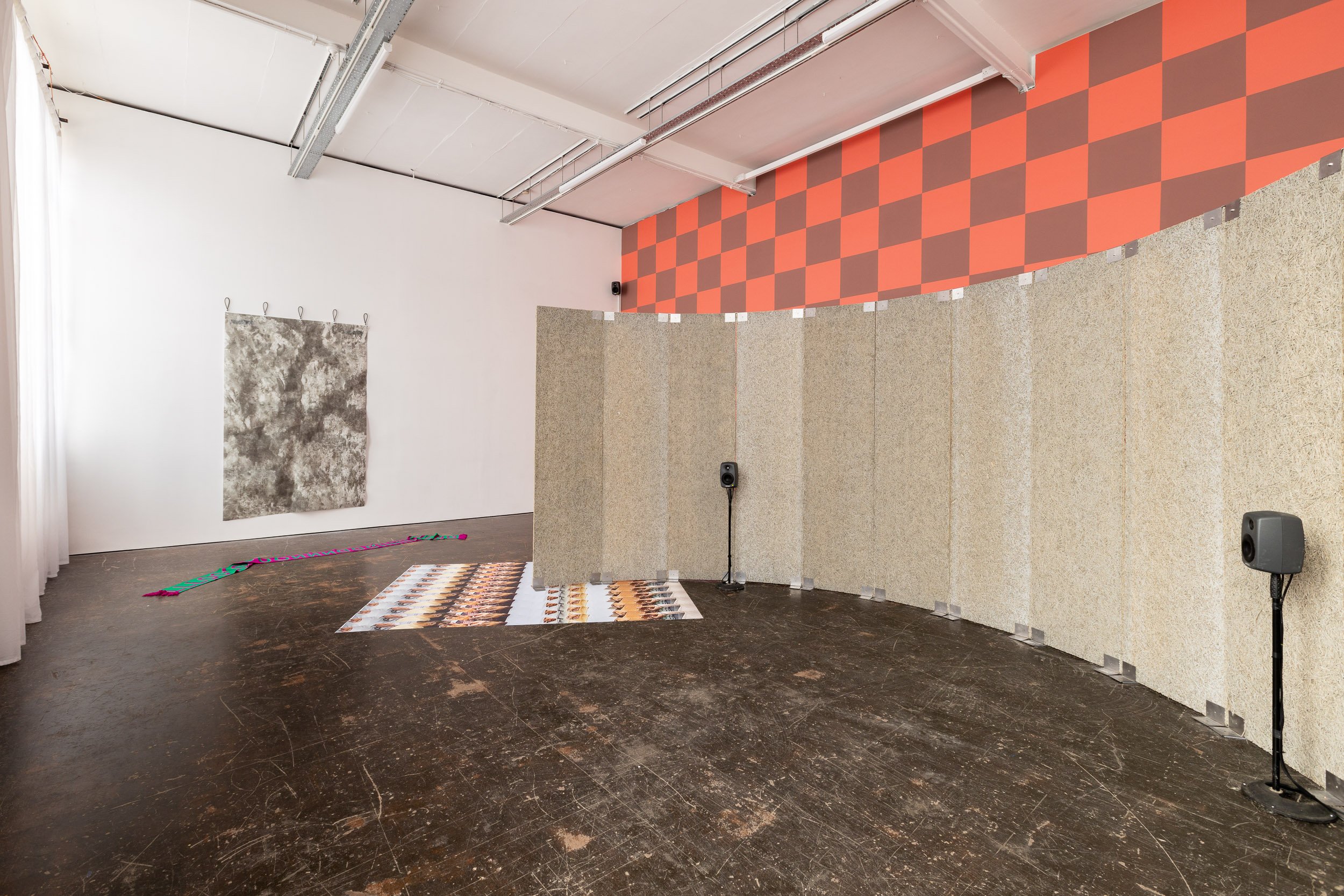
Presented on a checkerboard patterned wall, Metaphysical Reunification (2023) by artist Jala Wahid is a deck of aluminium-cast playing cards that counters and responds directly to the equivalent deck created by the Department of Defense, encouraging the USA Army’s preservation of archaeology during the invasion of Iraq. Here, we have presented 20 of Jala’s cards from the deck. Jala is now collecting and expanding upon artefacts from Mesopotamia and modern-day Greater Kurdistan. These artefacts were either displayed in London or Paris or are still missing after the USA military invasion of Iraq. Jala’s archival intervention directly opposes the illegal excavations and looting of archaeological finds.
In the recent reconfiguration, Jala has now added her film I Love Ancient Baby (2023), which is presented directly underneath her selection of the card deck. The film displays a collection of images that depict archaeological and historical artefacts from Kurdistan—employing juxtapositions and montages between museum documentation and playing cards for soldiers utilised within the war machine—the artist develops a narration of objects and people who are lost and found. The ambivalences of this narration and its relationship with archaeological discovery and isolation, cultural appropriation and colonialism are being acted out playfully as if rolling a die or dealing the set of cards anew to shift or correct the underlying meaning. Jala delves into the idea that time and feelings are cyclical and that we display the same anxieties and desires ancient civilizations lived out thousands of years ago. The artefacts are charged with these emotions in this film.
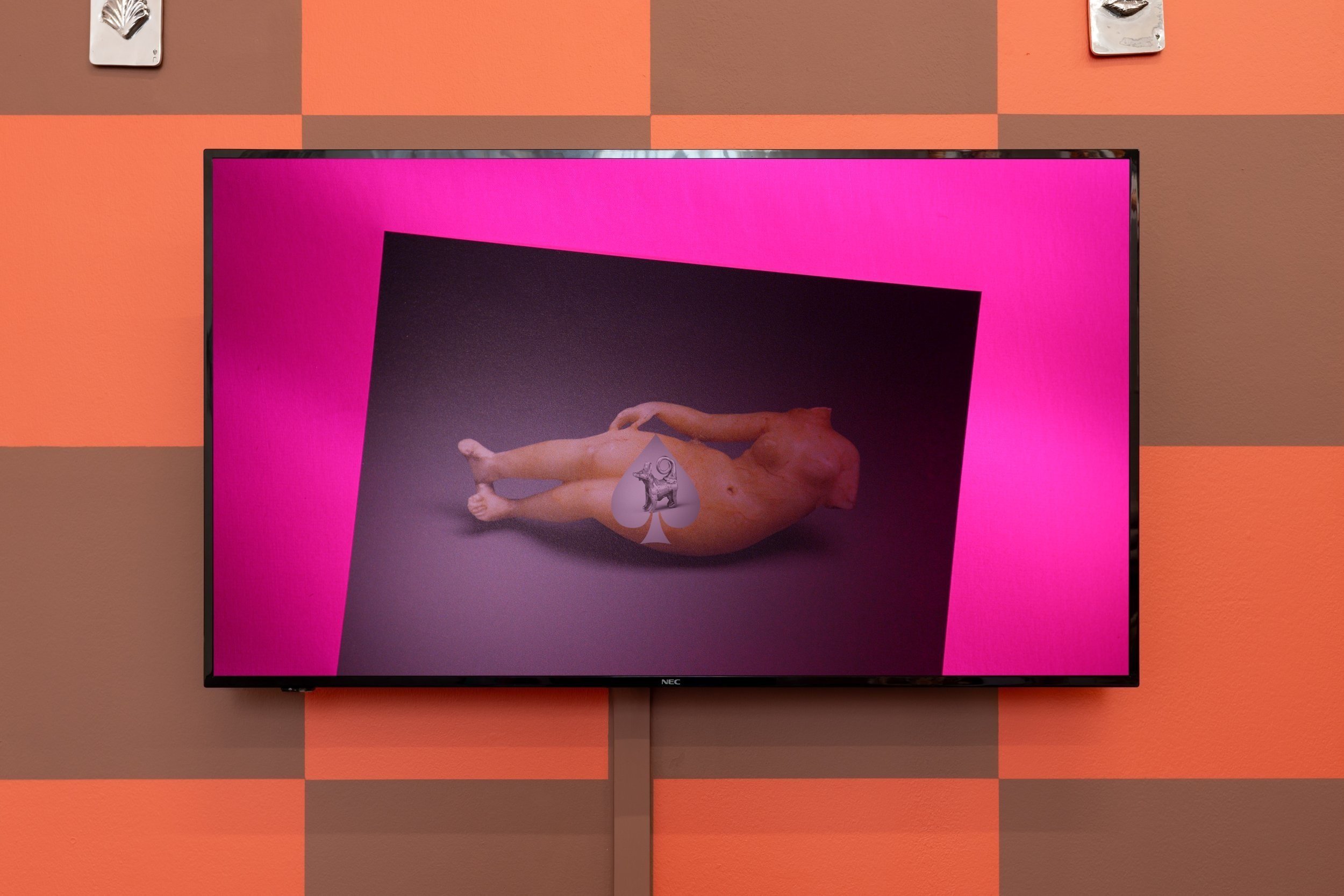
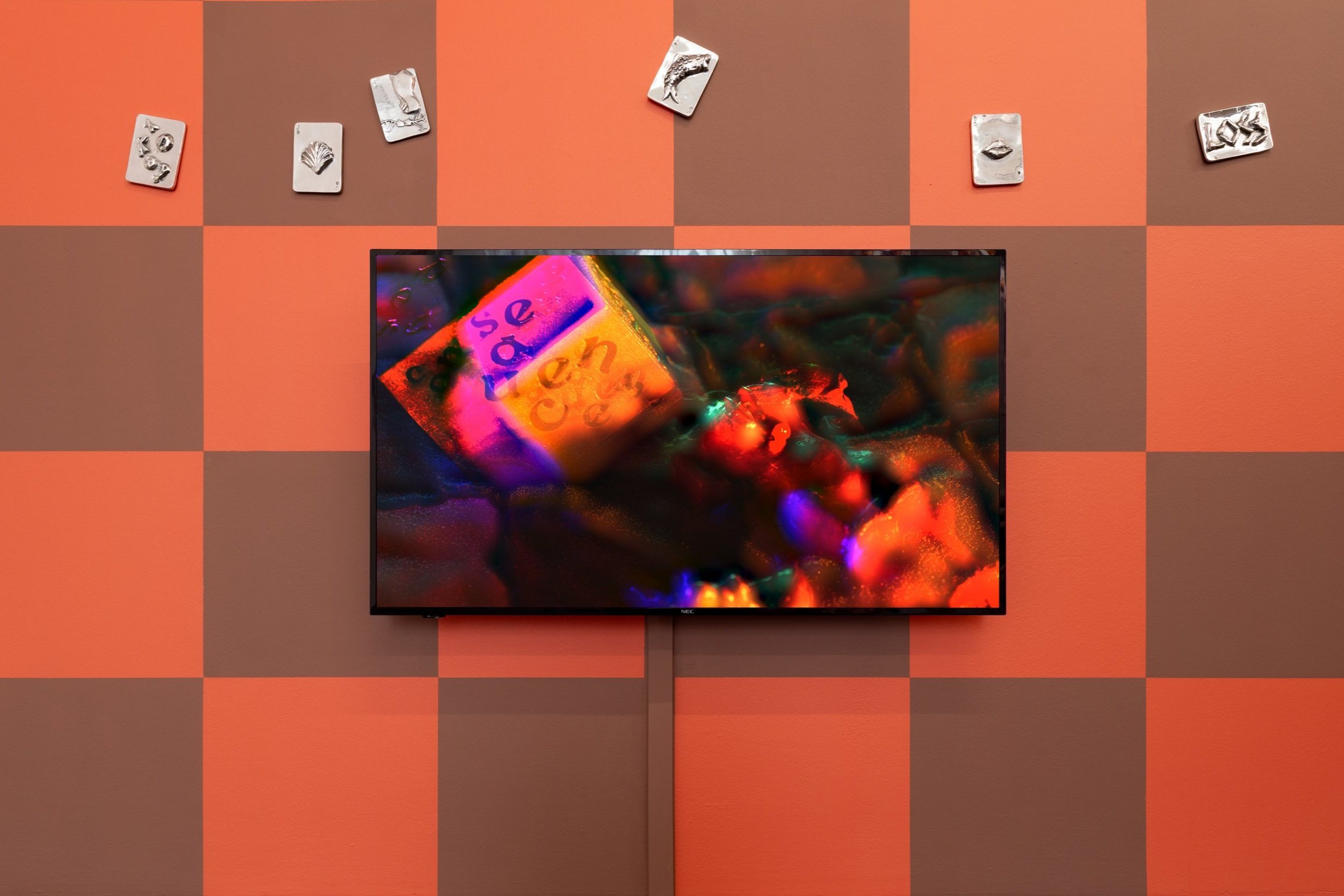
Turner-prize 2024 nominated*** artist Jasleen Kaur presents a photograph of land restitution between the Muslim and Sikh communities in Moga, Punjab, in 2021. Foundations are being ceremonially laid for a mosque to be reconstructed. You can see a brick being passed among hands. The photograph has been manipulated and reworked by Jasleen and, on this occasion, is printed in vinyl. The image on the floor is obstructed by and simultaneously extends Ashley’s structure, which stands on top of it. The images on the windows are caricatures of Moghuls, taken from popular Sikh martyr images of the 1950s. Jasleen grew up seeing these in worship and home spaces, specifically in the room where you eat blessed food. After a collective conversation between Primary’s programme team and all the exhibiting artists, Jasleen came to this selection because of their shared aesthetics, but also in consideration of the recent election in India and Narendra Modi’s anti-Muslim hate speech as part of his campaign. The images on the floor and windows counter one another—one is the historical narrative of ‘Muslim’ being fixed through mass-produced cartoonish imagery/propaganda. The other is a modern-day, overlooked news story that threatens the State's nationalistic agenda. The images in the window are alternated like a checkerboard mirroring Jala's work.
Jasleen’s additional piece is a 4m scarf featuring the text ‘LLLOOOOOOOONNNGGGIIIIIING’, which is an object from her exhibition Alter Alter (Tramway, 2023), which sifts through things inherited and expresses desires and longings for different political/spiritual communion. The piece is used here as a wayfinder to guide visitors around the exhibition. The lengthy drawl of the word “longing” can be associated with singing, a regular practice in political and spiritual spaces.
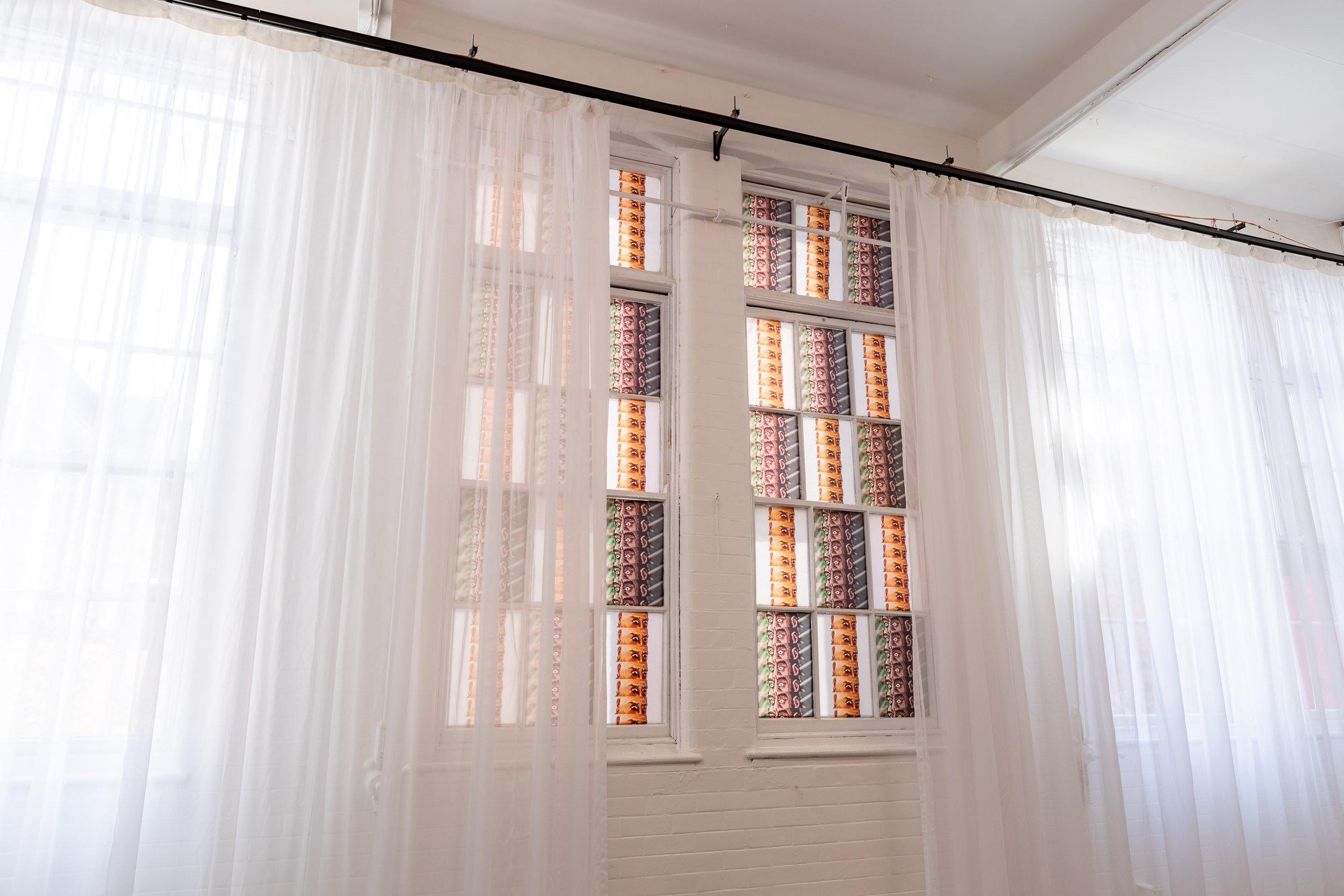
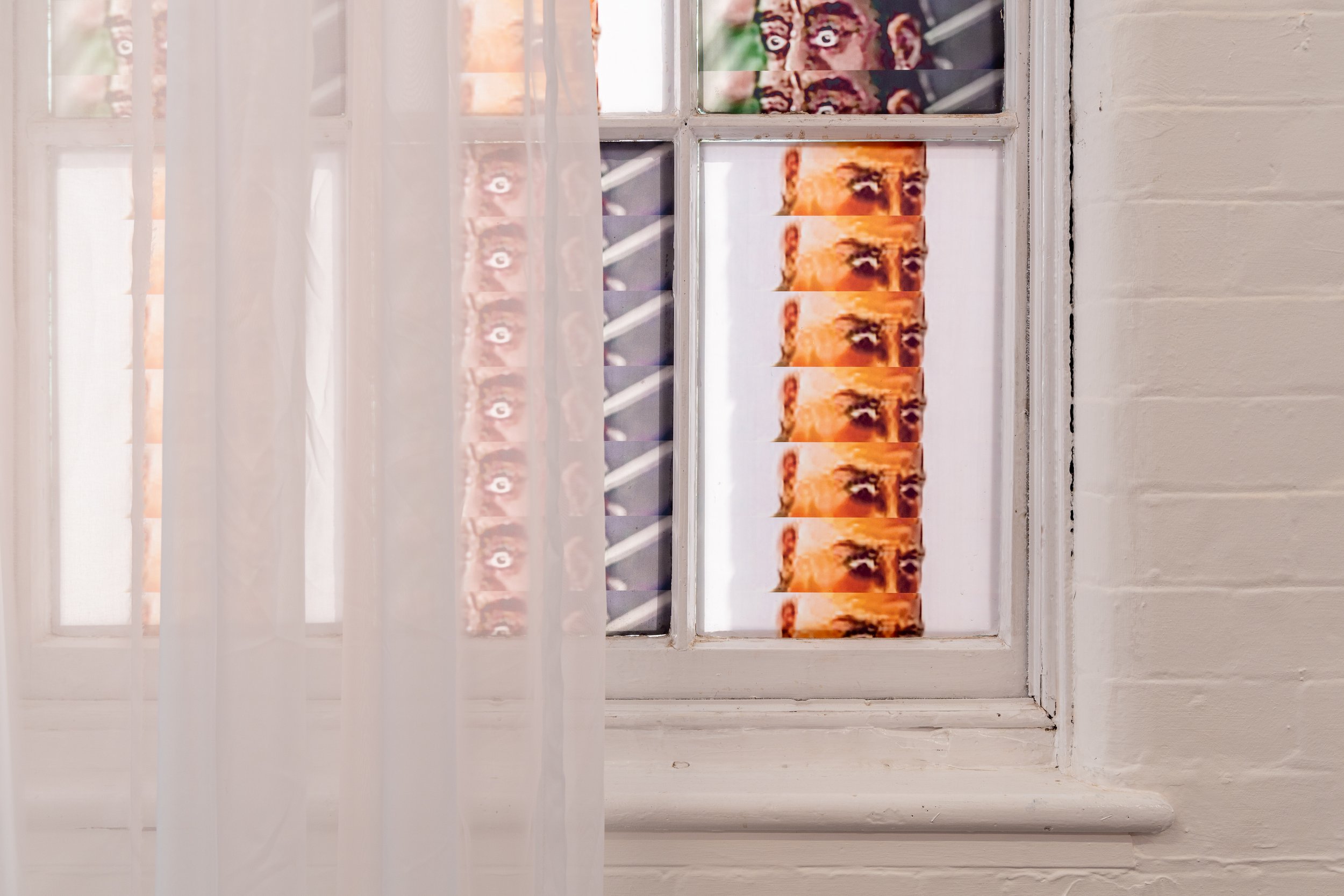
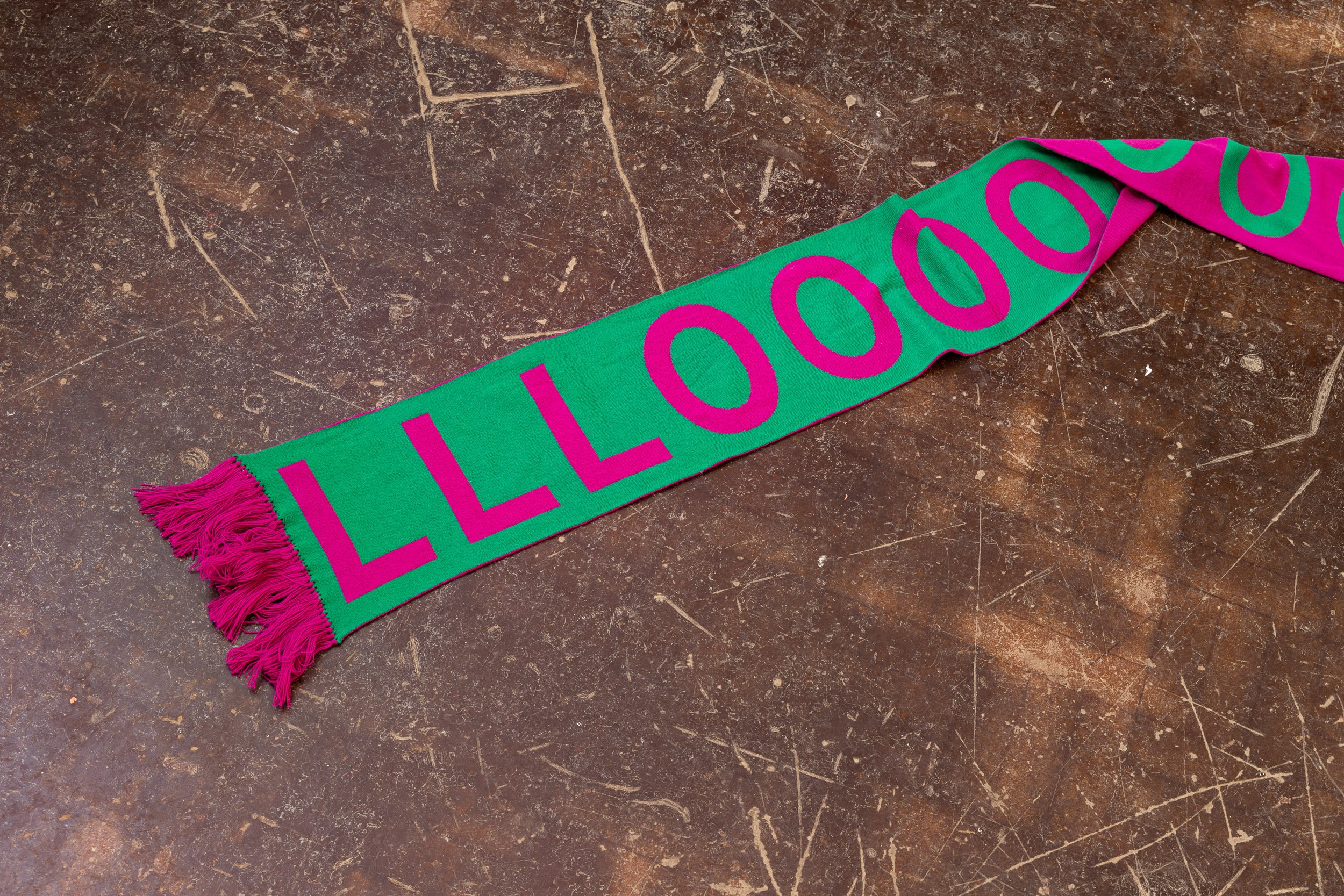
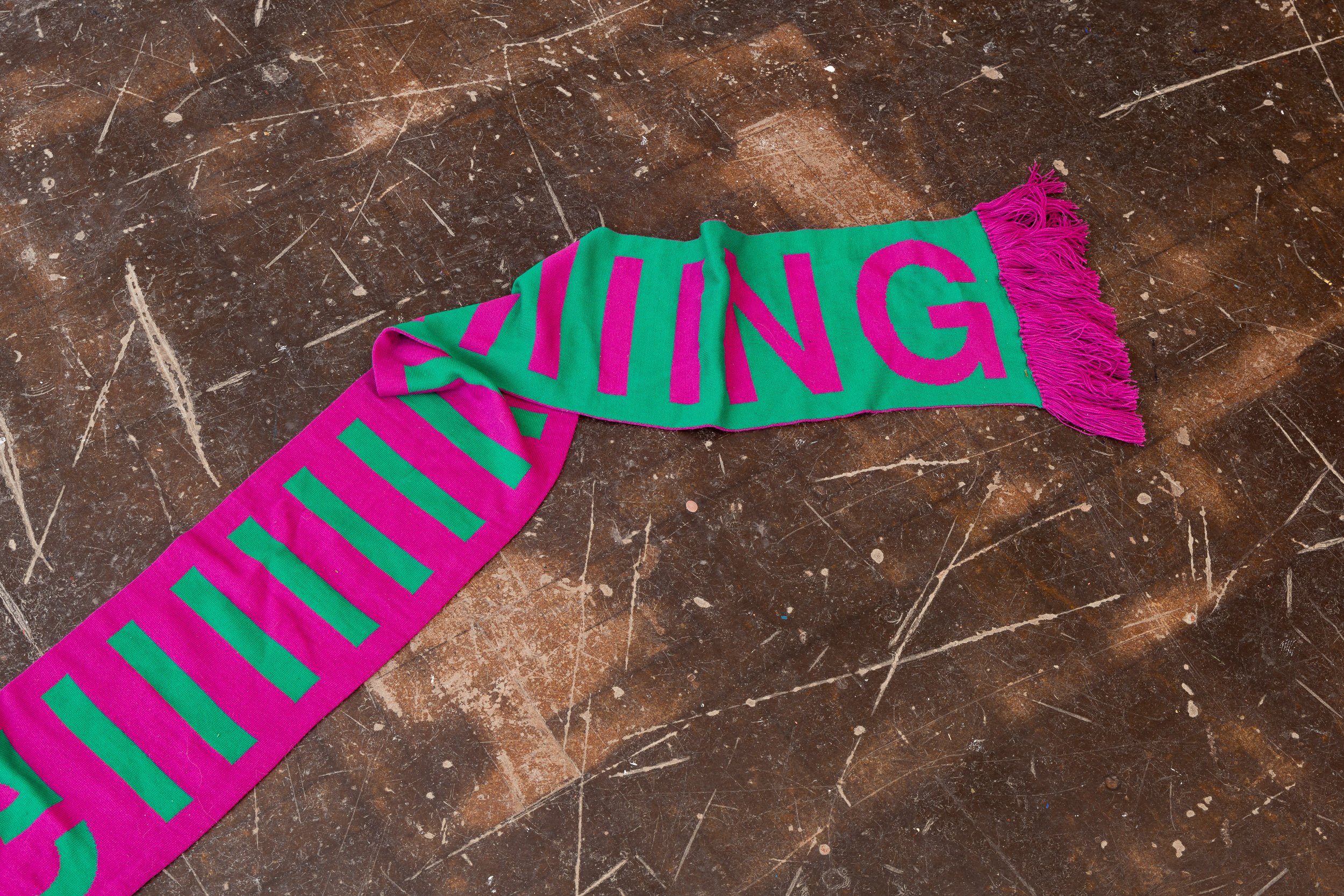
Jade Foster, Primary’s Programme Curator, thought about the exhibition’s physical change, potentially reflecting on the UK's upcoming election on July 4, which coincidentally aligns with the timeline for when the second configuration of Imagining Otherwise becomes public. July 4 is also, ironically, the USA’s Independence Day, a federal holiday commemorating the Declaration of Independence and Britain’s breakaway from colonial rule. Jade felt there was an interesting tension between these moments in time and with Jala and Ashley’s work, with the latter artist’s broader practice drawing on the thinking and history of Mississippi Delta Blues in the Deep South of the USA. Ashley is also interested in how, historically, Western norms of ownership have informed both music circulation and people’s right to access land.
* Version: ‘Another cut of a popular rhythm. This can be the vocal, deejay, instrumental or dub version, employing the same rhythm track as the original, or another producer’s recording of the rhythm’ (Barrow and Dalton 1997, 378).
‘The original version takes on a new life and meaning in a fresh context. …It’s a democratic principle because it implies no one has the final say. Everybody has a chance to make a contribution’ (Hebdige 1987, 14).
** Riddim, if popular, may be used in dozens—or even hundreds—of songs, not only in recordings but also in live performances. Since the 1970s, riddims have accompanied reggae music and through the 1980s, more widely known as dancehall. As seen in dancehall music, there is a voicing part—sung by the DJ—over some riddim that has probably been widely used in many other songs. There is a unique establishment in the combination of riddims and voicing.
*** Jasleen Kaur won the Turner Prize in 2024 for the show Alter Alter at Tramway, Glasgow.
Further Reading: Sarah E. James ‘The Exhibition as Performance’ Art Monthly, issue 479, Sept 2024, pp. 6-10.